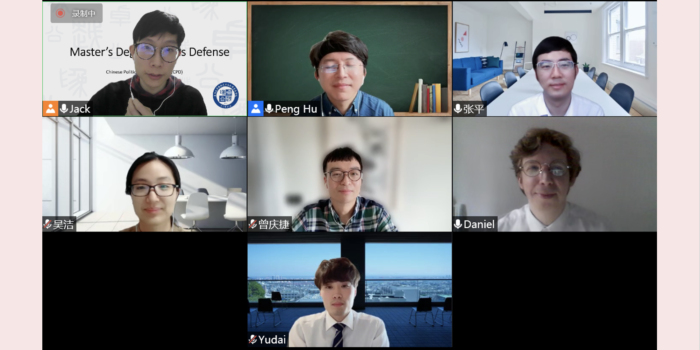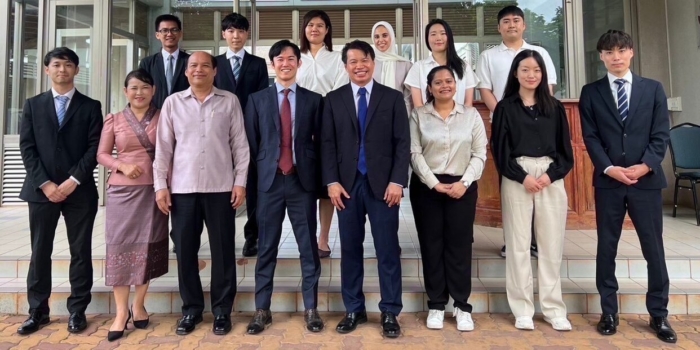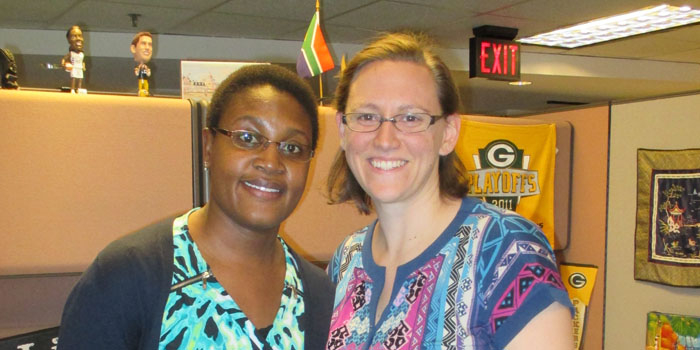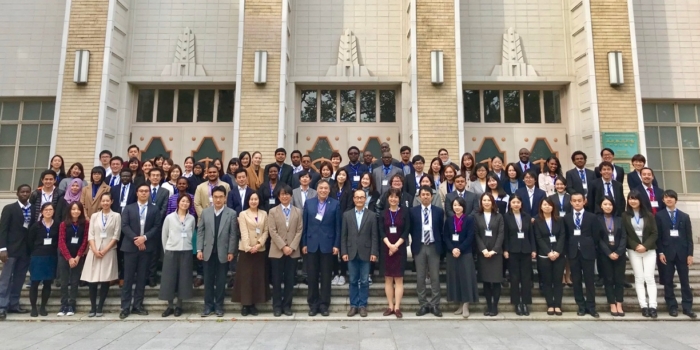From September 2021 to June 2022, I participated in the Campus Asia double degree program and studied at the School of International Relations and Public Administration (SIRPA), Fudan University in China. This program is carried out in three countries, Japan, China, and South Korea. This article introduces my experience in the double degree program and at Fudan University where I studied.
The Campus Asia Program aims to train “Risk Management Specialists” who can respond to the diverse risks of global society through the joint efforts of three graduate schools in Japan, China, and South Korea. This program has expanded its collaboration to ASEAN countries such as Thailand and Lao PDR and has been developing a high-quality joint education as the Campus Asia Plus Program since 2021.
I was enrolled in the English-Taught Master Program in Chinese Government and Governance, where all lectures were conducted in English. SIRPA offers either a Master of Public Administration or a Master of International Politics. SIRPA attracts a large number of excellent students from different fields from all over the world through partnerships with various overseas graduate schools. There is a wide range of subjects, from Chinese politics to EU studies, political theory, international relations, and public management and it is possible for us to acquire specialized knowledge in various fields.
There are compulsory subjects for completing the program and elective subjects that we can choose according to our major at SIRPA. In the first semester, I took three compulsory courses: International Politics and Theories, Research Methods of Political Science, and Chinese Public Administration, and two elective courses: Risk Management in Development Process and Chinese Language. In the second semester, I took three compulsory subjects, Contemporary Chinese Diplomacy, Political Development in Modern China, and Chinese Society: Past and Present as well as one elective subject, which is Chinese Language. All of these lectures were provided through online, but I was able to have very high-level discussions in each class because there were excellent doctoral students attending each class that I took.
As for my master thesis, my academic supervisor guided me online about once every two weeks. In addition, four thesis examinations were conducted before submission of master thesis: Proposal Defense, Pre-Defense, Blind Review, and Final Defense because SIRPA is characterized by a curriculum structure that emphasizes thesis writing rather than coursework. Despite my academic supervisor’s busy schedule, he worked hard to review and provide valuable feedback on my thesis. Thanks to his considerate support, I was able to finish writing the master thesis systematically.
Due to the influence of the COVID-19, I was not able to go to China during my study. However, I could feel the impact of the lockdown in Shanghai even through online classes. In one class, there was an incident such as the teacher suddenly interrupting the class because of a simple coronavirus test. Furthermore, I had to complete the second semester lectures one month earlier than usual, so there were very busy days when I was worried about the deadline for assignments and presentations at the same time. Although I imagined what it would have been like if I had been to Shanghai, but I am sure that I would have faced a lot of trouble.
All lectures have been moved online and there were major changes in graduation requirements such as the addition of a presentation at academic conference and internships due to the influence of COVID-19. Under these circumstances, it was not easy to obtain the credits required for graduation and finish my master’s thesis within one year. However, I felt that my experience at Fudan University allowed me to grow as a researcher while being stimulated by the efforts of the students around me. In addition, there was a joint international symposium among universities to present research reports on risk management in East Asia and there were various opportunities to listen to the risk management experts and discuss various issues occurring in the world. As a result, I was able to acquire the knowledge and skills to play an active role in international institutions.
Finally, I would like to express my sincere gratitude to my academic supervisor Professor Keiichi Ogawa for providing me with a wonderful opportunity, strong support, and encouragement. In addition, I would like to extend my deep gratitude to my academic supervisor Professor Zhang Ping at Fudan University for providing valuable comments and comprehensive technical assistances in the writing my master thesis. Moreover, I sincerely appreciate to professors in charge of Campus Asia at both Kobe University and Fudan University as well as everyone who has supported me.
Authored by Yudai Ishii (Master’s Student)
Related






